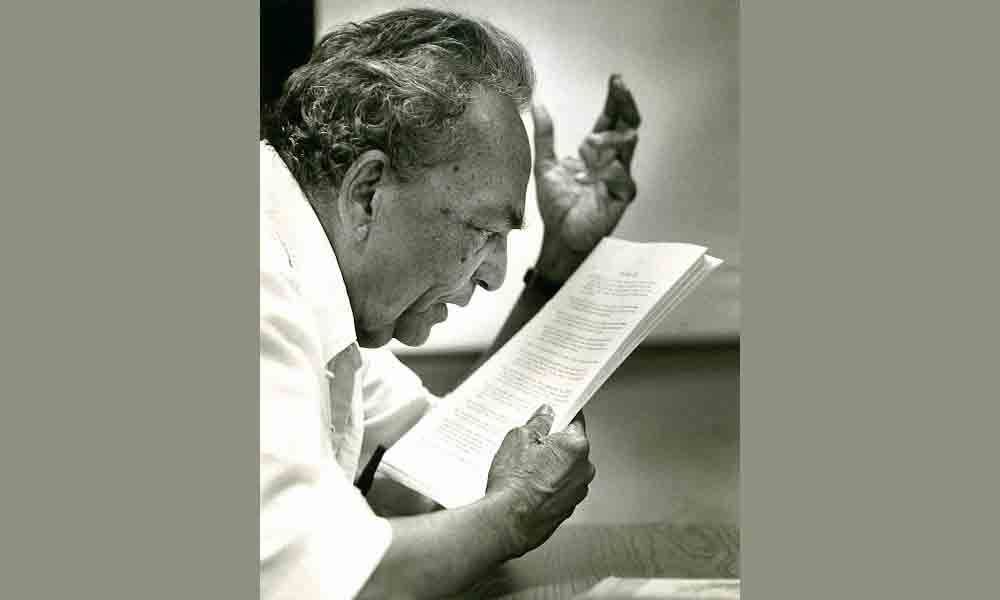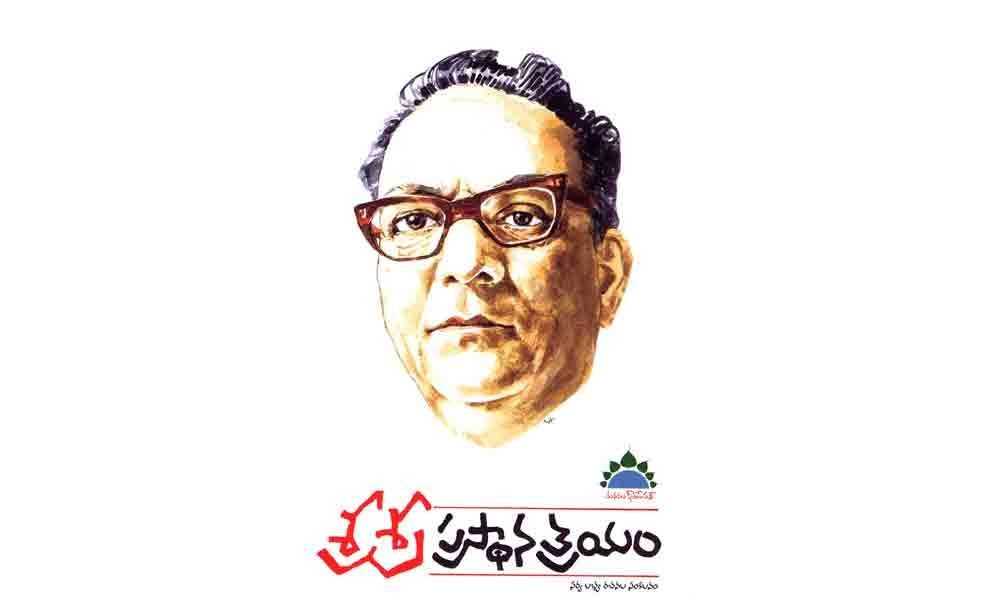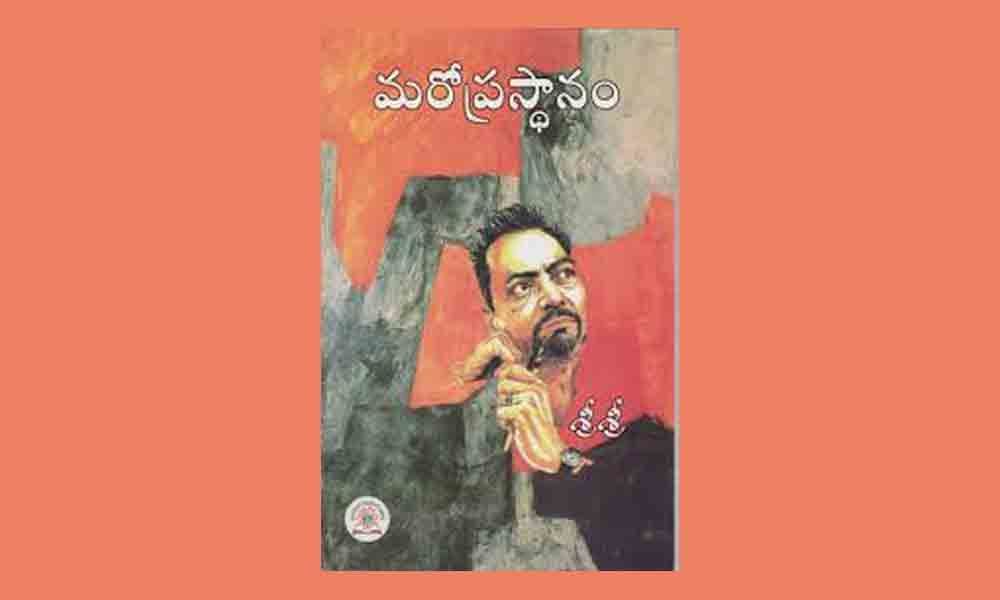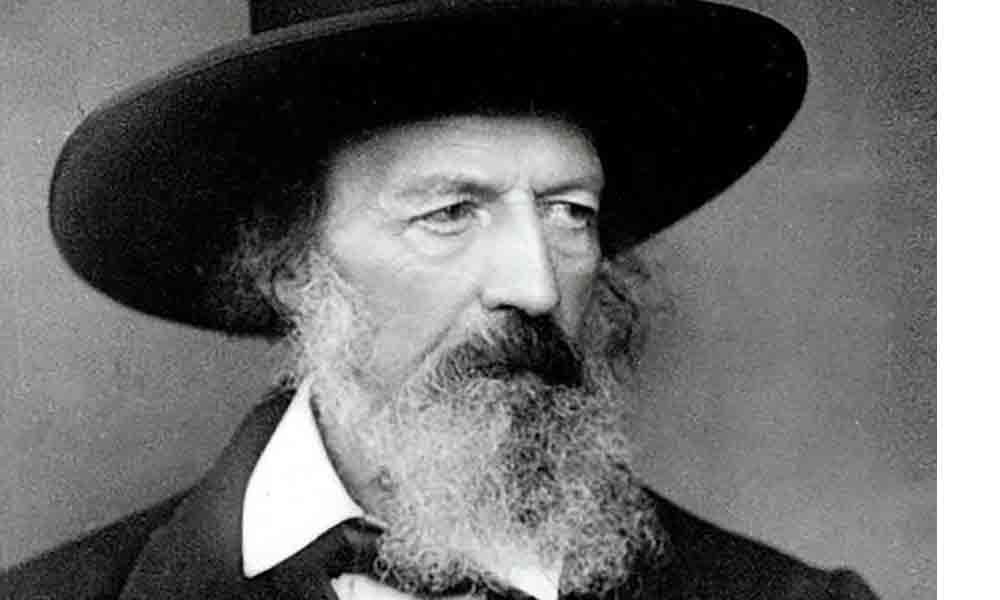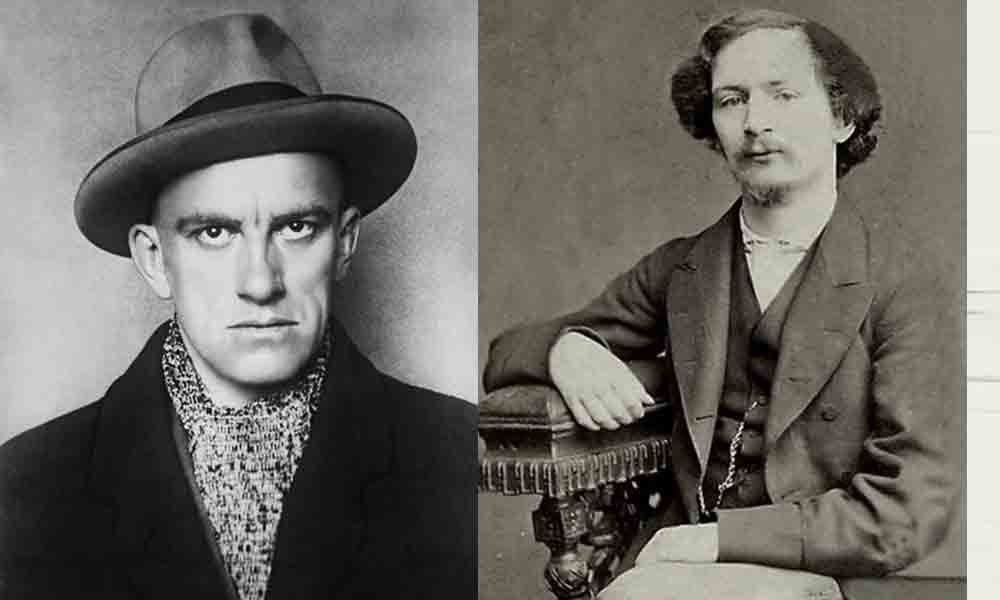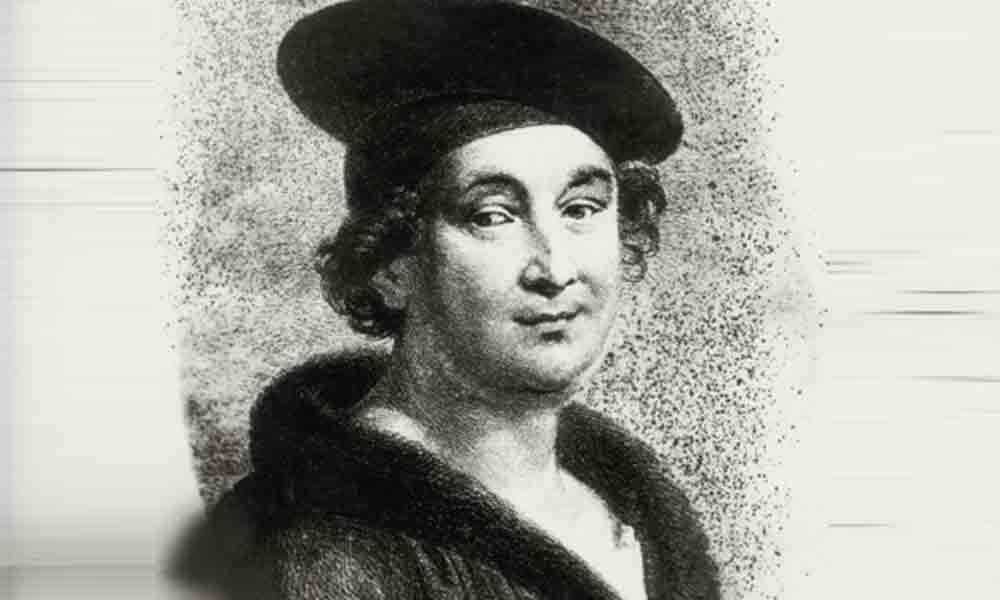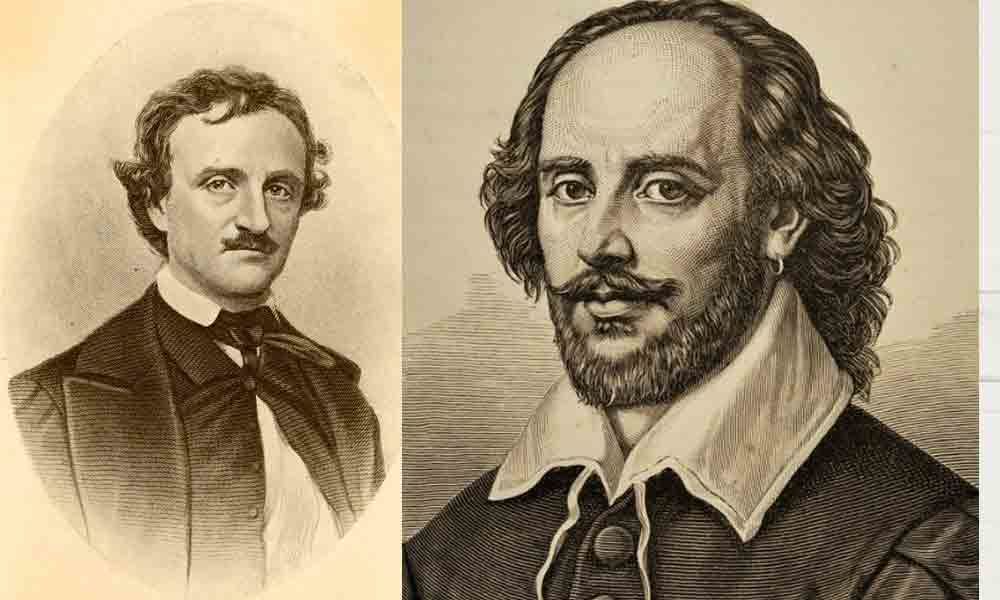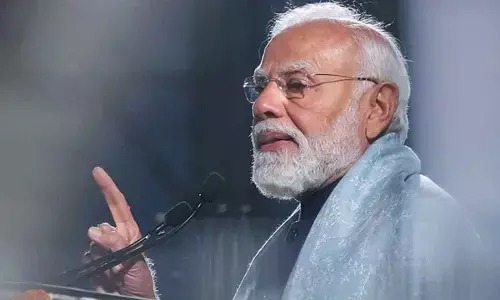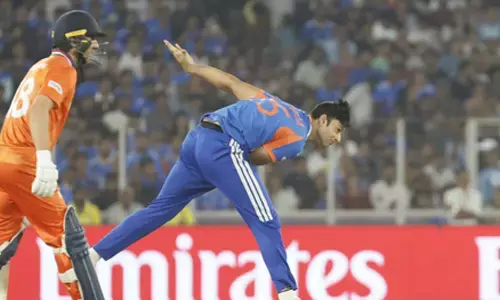A 'Glocal' poetic genius
Sri Sri, the two words spell an age, a new understanding of the purpose of literature, and for this to achieve in a life time, it was essential that this poet should establish good authority on world literature
After all, what you write, always depends on what you read, and what you take in. This was true, of right from the times of Nannaya ( 1030 A.D.) , when he began making into Telugu, the Sanskrit Mahabharata of Vyasa, it was also in one way appropriation of this thousands-year-old text, into Telugu, albeit, into Nannaya's time, which is a thousand years before us.
In order to be a good writer, one needs to be an erudite reader of vast body of literature. In Nannaya's time, if it was Mahabharatha and other epics, in Sri Sri's time, it was the world literature in many languages. The trend of the world has established irreversibly a link language, and most of the world literatures are available in the major lingua franca i.e. English, whether one likes it or not. Being global and local at the same time renders poets like Mahakavi Sri Sri to be referred to as glocal poets.
Right after Kavitrayam, who brought Mahabharatha in a great mission of translation, other such practices adhered to by Srinatha, and Pothana can be traced to this zeal of translating and trans-creating major texts in our own language, which is a sure fire way of internal development of any language as a fine tool in the hands of adept litterateurs. Same was the case with Sri Sri also. If he had been only a prolific Telugu poet, his name and fame would have waned out long back. But right from his formative days, Sri Sri developed a cosmopolitan view of literature, and in his very first poetry anthology Prabhava, published in 1928 by his poet friend and mentor in one way, Puripanda appala Swami, there were two translations one of Shakespeare, and the other , rather a long poem Oenone by A.L. Tennyson. The translation was into semi-prosodic style of Thetageethi, and it indicates that before the emergence as Sri Sri, Srirangam Srinivasarao was struggling and shoring himself in the mighty currents of literature.
The need for translation is normally felt by a writer, once he reads a good text, and when he knows for sure that such format of writing would be of interest to his mother tongue. There were no kings, who have asked the poets in the 20th century to write or translate, but it was the public duty to amalgamate the clarion call of literature, as the welfare of the entire people of the world was not expressed more strongly, in any format, other than literature. There stands Sri Sri, as a towering genius who contributed new blood of ideas and expressions into Telugu Literature, and enriched it with the traditions and talents world over.
His magnum opus 'Mahaprasthanam', was a slim example of this skill and strength as a translator, and as a reader of the world literature. It contained just three poems, one influenced by EA Poe, the second one, 'A Match' by AC Swinburne, and for these two poems Sri Sri claimed only influence in a round-about manner, a mark of his boisterous literary personality. The third one, 'Les Pauvres' was by Belgian poet Emily Ver haren; a direct translation as acknowledged by the poet. The influence of Bertolt Brecht on Desa Charitralu is discernible, but this poem grew to be of its own stature in Telugu literature.
Sri Sri also translated a long poem, Vladimir Ilyich Lenin, of the same title by Vladimir Mayakovsky, 'Mother', a play by Karl Capeck, and 'Cherry Orchard' by Anton Chekhov. His prose translations include more than fifteen stories of William Saroyan, an American author.
To know the wider range of his translations from the world literature, there is no better source than Khadga Srishti (1968), his third poetry anthology. This volume contains more than fifty translations of world poetry. This book has the translation of Francois Villon's 14th century poem 'Ballade des dames du temps jadis" (translated into English as 'The snows of Yesteryear'), which is the earliest work in chronological order.
The fifty poems of world famous poets include writings of Dylan Thomas, Alexander Blok, Alexander Pushkin, Nikolai Nekrasov, Andre Breton, Pablo Neruda, Henri Michaux, Paul Eluard, Christopher Logue, Harindranath Chattopadhyaya, and many others. He even translated Gurajada Apparao's English poem on Congress National meet and included it in this volume known for his translations along with original verse.
His last poetry anthology 'Maro Prasthanam' a posthumous production by his left radical friends and Virasam, also contained translations from Mao Tse Tung poems, Pablo Neruda, and some poets of Bangladesh. Otto Rene Castilllo, a Guatemalan poet's works were his last translations in the volume. On the request of Gutala Krishnamurthy, a researcher friend, who lived for a long time in London, Sri Sri had translated the landmark poem "Hound of heaven" of Francis Thompson, but mysteriously his Virasam friends did not find it suitable for inclusion in 'Maro Prasthanam' that was published after his death. Finally, this work found its place in the three-volume production of his complete works published by Manasu Foundation.
Sometimes Sri Sri changed the names and contexts of world literature to blend well in the native milieu, however his contribution through translations that gives Telugu readers a better understanding of world literature in the twentieth century, remains unparalleled.
The Mahakavi had continued the glorious legacy treating the world and literature as comprehensive entities and expanded the creative span, which is a hallmark quality of Telugu literature since the last millennium.
(Sri Sri's 110th anniversary year
begins on April 30)
The writer is a bi-lingual poet, translator, columnist, critic and an orator


